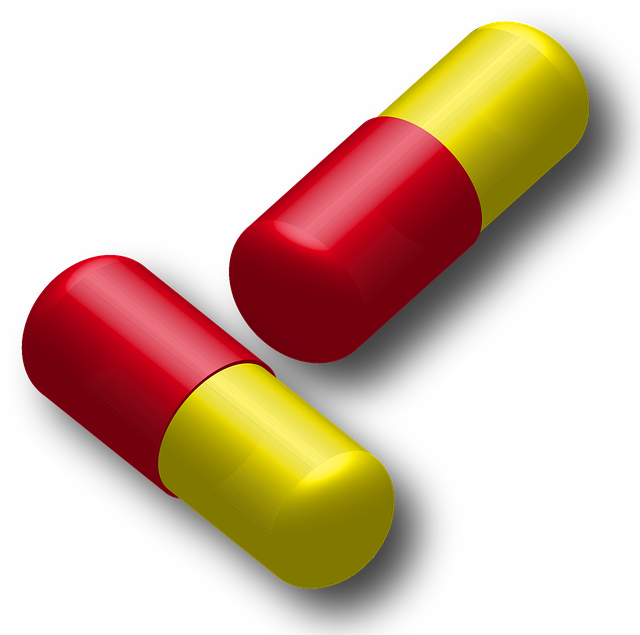Cold therapy, including ice baths and cold showers, significantly boosts immunity by constricting blood vessels, increasing white blood cell production, and reducing inflammation. Regular exposure triggers a powerful response in the autoimmune system, releasing hormones like norepinephrine and cortisol to enhance immune cell circulation and combat abnormal cells. Incorporating techniques like ice baths, cold compresses, or cryotherapy sessions can regulate overactive immune systems, potentially alleviating symptoms of autoimmune disorders and improving quality of life. Scientific research highlights the potential of cold exposure as a powerful tool for managing autoimmune conditions.
“Uncover the powerful synergy between cold therapy and autoimmune support in this comprehensive guide. Discover how a simple, natural practice can boost your immunity and influence your autoimmune system. From understanding the science behind cold therapy’s immune-boosting capabilities to exploring its direct impact on managing autoimmune conditions, this article delves into effective strategies for incorporating cold therapy. Find out how this ancient technique is making waves in modern health practices, offering hope and relief for those navigating autoimmunity.”
Understanding Cold Therapy: A Natural Immune Booster
Cold therapy, also known as cryotherapy, is a natural and powerful way to boost your immune system. By exposing your body to extreme cold for short periods, typically through ice baths, cold showers, or whole-body cryostimulation, you initiate a series of physiological responses that support overall health and wellness.
When you immerse yourself in cold water, blood vessels constrict, reducing blood flow to the extremities and core. This prompts the body to activate its natural defense mechanisms, increasing the production of white blood cells—the soldiers of your immune system. Over time, regular cold therapy can strengthen your body’s response to infections and inflammation, making it an effective strategy for supporting autoimmune health.
The Impact of Cold on Autoimmune Systems
The exposure to cold has a profound effect on the autoimmune system, offering a unique and natural way to boost immunity. When the body is subjected to cold temperatures, it triggers a series of physiological responses that can be beneficial for those with autoimmune disorders. One key mechanism involves the release of certain hormones and chemicals, such as norepinephrine and cortisol, which help regulate inflammation and support the immune response.
Additionally, cold therapy can stimulate the circulation of immune cells, enhancing their ability to detect and combat abnormal cells. This increased mobility of immune cells allows for better surveillance and recognition of potential threats, contributing to a stronger defensive mechanism against autoimmune conditions. As a result, incorporating controlled cold exposure into one’s routine may provide an effective complementary approach to support overall autoimmune health and boost the body’s natural defense mechanisms.
Incorporating Cold Therapy into Autoimmunity Management
Incorporating Cold Therapy into Autoimmunity Management
Cold therapy, or cryotherapy, has gained attention for its potential benefits in supporting autoimmune conditions. By exposing the body to extreme cold temperatures for short periods, this therapeutic approach triggers a series of physiological responses that can help boost immunity. When used as part of a comprehensive management strategy, cold therapy may reduce inflammation, slow down the overactive immune system, and promote overall balance.
For folks living with autoimmune disorders, integrating cold therapy into their routine could be a game-changer. It offers a natural way to regulate the immune response without relying heavily on medications. Whether it’s through ice baths, cold compresses, or targeted cryotherapy sessions, these practices may alleviate symptoms, enhance overall well-being, and even improve quality of life. Remember that, in terms of boosting immunity with cold therapy, consistent practice and tailored approaches are key to reaping the potential benefits.
Scientific Evidence and Future Directions
Scientific evidence suggests that exposure to cold, or cryotherapy, can have a significant impact on the immune system. Studies have shown that brief periods of cold stress can trigger an anti-inflammatory response, helping to reduce chronic inflammation associated with autoimmune conditions. This is particularly promising as chronic inflammation is often a root cause of many autoimmune disorders.
Future research in this area could explore personalized cryotherapy protocols for different autoimmune diseases. By understanding the specific effects of cold on various immune cells and pathways, scientists may develop targeted interventions to boost immunity with cold therapy. Additionally, combining cryotherapy with other therapeutic approaches could lead to synergistic benefits, offering a promising avenue for managing and potentially reversing autoimmune symptoms.
Cold therapy, as a natural method, has shown promising potential in supporting autoimmune management. By understanding how exposure to cold boosts the immune system, individuals can explore this accessible and potentially beneficial practice. Incorporating short-term cold exposure into daily routines may offer a simple yet effective way to enhance immunity and promote overall health for those navigating autoimmune conditions. Further scientific exploration is needed to uncover the full extent of its benefits, but initial findings suggest that cold therapy could be a valuable tool in supporting the body’s natural defense mechanisms.
